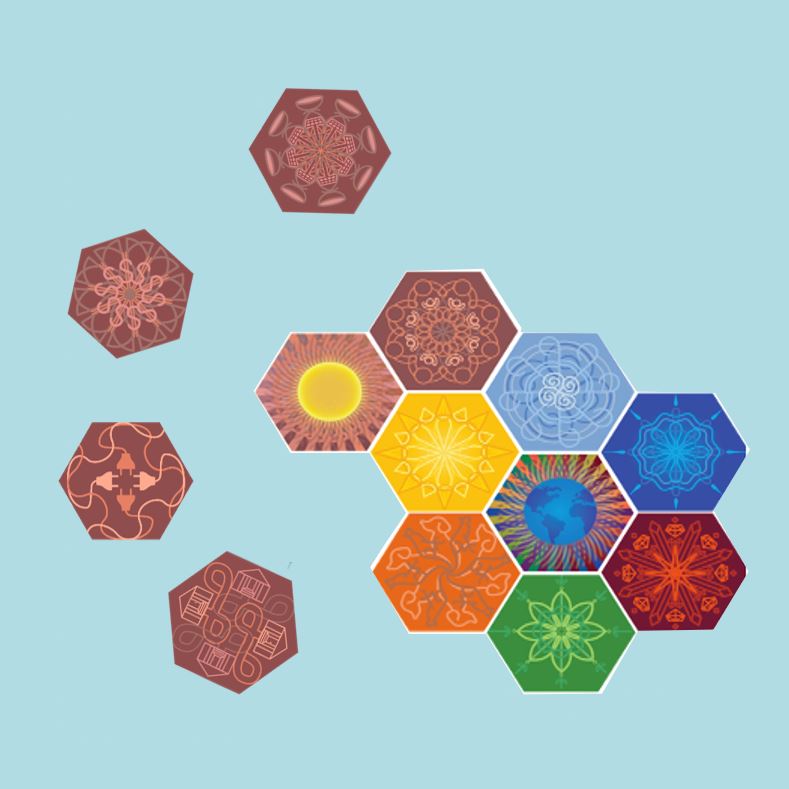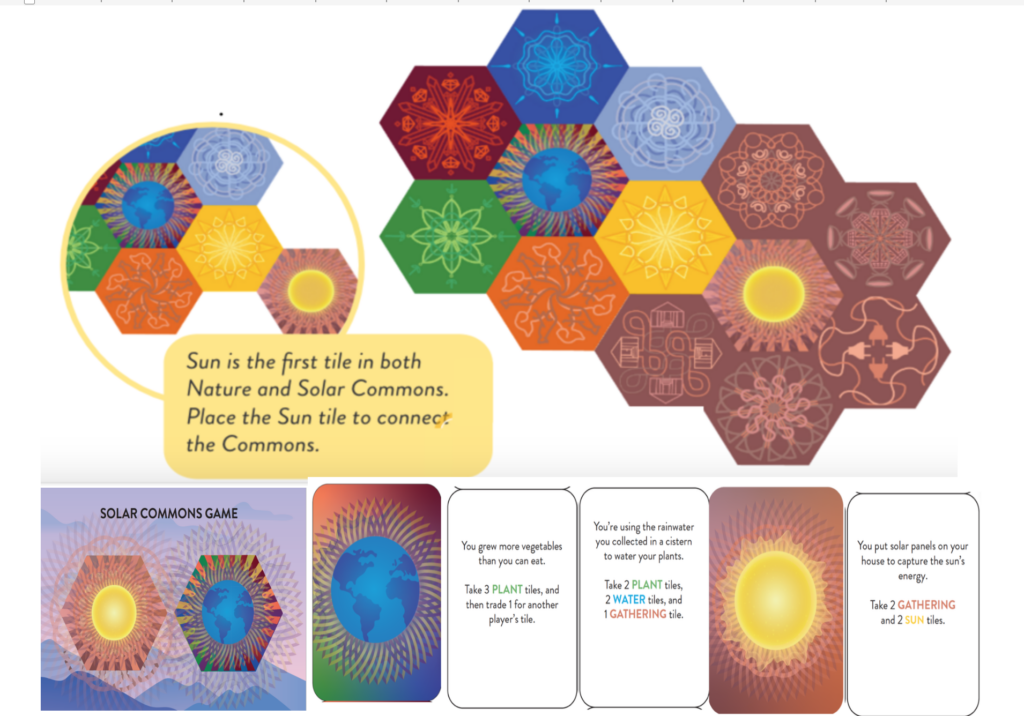
Overview
The Solar Commons Project Art Team has created a tile board game that educates kids (ages 10 and up) about social-ecological relationships involved in Nature Commoning and Solar Commoning. This is a place-based game where solar technology is introduced in the context of “gathering” and using the gifts of nature and community as those gifts appear in kids’ local regions (sunshine, water flow, plants, minerals, wind and soil) and in kids’ lives (acts of kindness, sharing and cooperation among neighbors). Kids learn to play by observing the mutualism of local natural and social systems in simple vignettes—”you took a long shower today; give back two water tiles.” Game rules are simple and invite creativity, reciprocity and laughter. The goal of the game is to build and connect beautiful, healthy, colorful tile neighborhoods through nature commoning and solar commoning while returning fossil fuel tiles to the stack of common wealth from which they came.
As with many children’s games, observant adults are the ones learning how to play in right relation to the world. Indeed, the complex legal work of building equitable community trust ownership of solar energy is an exercise in learning to play the Solar Commons Game. Solar Commons researchers believe that, through the Solar Commons Game, kids become their parents’ teachers and their communities’ messengers. With this game the next generation of earth citizens learns what it means to work and care in an “embedded economy” with planetary boundaries as the ceiling and community well-being as the foundation. Production and sale of this game will provide a revenue stream for the artists who work with Solar Commons communities to showcase their equitable title to the sun’s common wealth benefits through public art.

Game as Commons Teaching Tool
The Solar Commons Game envisions our urgent energy transition within the relationships of an embedded economy where renewable energy technologies and uses contribute to planetary well-being through new models of community ownership, peer governance and cooperative stewardship emerging in a commons sector. (link) The game enables kids to creatively act this out. Common wealth tiles are distributed to players and stacked on a board ready to circulate in relations of giving and taking in the game: nature tiles—sun, plants, animals, water, air, minerals flowing in relations of mutualism; Solar Commons tiles—community, agreement, electricity, trust, neighborhood supporting relations of community-building; and fossil fuel tiles—dangerous elements that take more than they give. Kids draw cards instructing them, in vignettes, to give and take tiles from each other and from the common wealth board. The game teaches kids to observe the different relationships of giving and taking around them. Solar Commoning tiles demonstrate mutual aid relationships among human communities who capture and share the sun’s common wealth through solar technologies and creative economies. Nature commoning tiles teach the mutualism of natural systems. Through cooperation and the mutualism of nature, kids build healthy, colorful tile neighborhoods and return fossil fuel tiles back to the common wealth tile “bank.”
Through this game, Solar Commons researchers aim to connect solar technology to a new paradigm of mutualism in our economy and aliveness among earth citizens. When game-playing families and communities see solar panels around them–on rooftops and shade structures, in fields and along freeways—they will hopefully better appreciate the relationships in which this technology is embedded. They will have a sense that they too can use solar arrays to gather the sun’s gifts and equitably share them with neighbors. They will know what it feels like to use the sun’s gifts wisely, in right relationship to a shared, living earth. They will understand what it means to pay the earth’s gifts forward to the next generation. And, they will recognize the wisdom of ancestors whose gathering technologies of baskets and pottery were more simple than solar panels, but whose teachings of how to gather respectfully are still meaningful today.


